Join a community of readers who are committed to Jewish stories
Sign up for JBC’s Nu Reads, a curated selection of Jewish books delivered straight to your door!
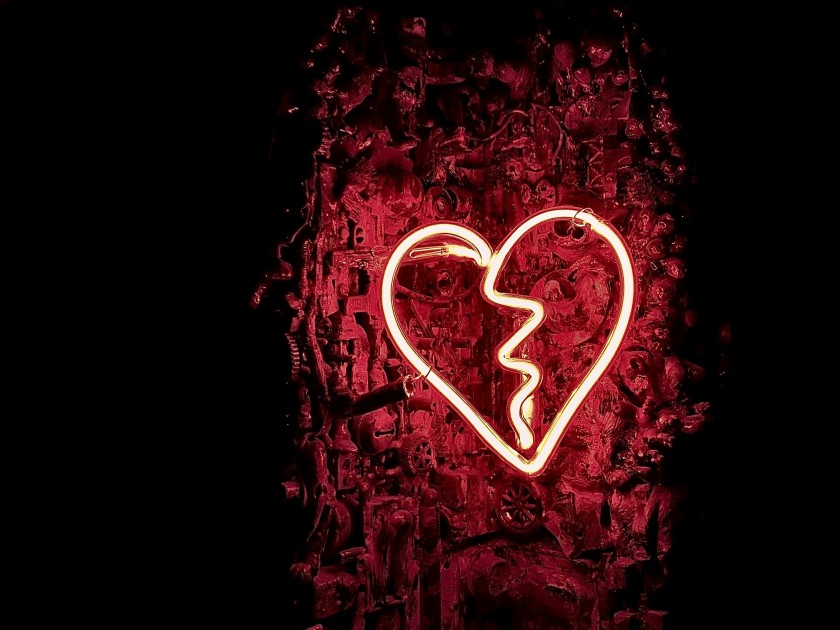
Photo by Marah Bashir on Unsplash
Jumping to conclusions is one of the most natural human impulses. We all do it, and no wonder. It can be comforting to believe we know everything about another person — that their story can be summed up in a single phrase or moral judgment. But while we all feel the temptation to sort others into distinct categories like “villain” or “hero,” the truth is rarely that simple. And of course, the same can be said in fiction.
This idea of preconceived notions and judgements kept returning to me as I worked on my novel Fagin the Thief. For two hundred years, the character of Fagin from Oliver Twist has been flattened into the “wicked Jew,” leaving no room for a human spirit beneath those two words. I felt it was past time to let readers form their own opinions of Fagin, this time with a fuller perspective.
The following eight books invite readers to challenge their assumptions about the kind of people and characters we may write off as unforgivable. Some of these novels feature characters who are learning to see others more fully, while others ask the reader to do that difficult but necessary work themselves.
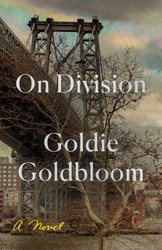
On Division by Goldie Goldbloom
On Division is the story of Suri, a matriarch in Williamsburg’s Hasidic community whose life appears to conform fully with her neighbors’ expectations — until she finds herself pregnant at age fifty-seven. As Suri wrestles with the widening gap between self and collective, the reader is invited to question their own assumptions about what it means to belong. This moving novel is a powerful reminder of the burdens our friends and neighbors may bear that we know nothing about.
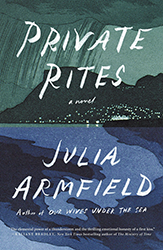
Private Rites by Julia Armfield
This story of grief, familial forgiveness, and climate disaster is one of my favorite reads of the past year. Private Rites follows sisters Isla, Irene, and Agnes after the death of their father, a complicated figure known for his genius and his cruelty. It’s a meditation on how one painful relationship can ripple through a person’s entire life, as well as what can be lost and gained by deciding not to let the past consume you.
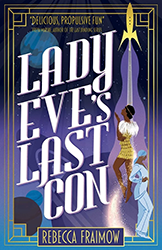
Lady Eve’s Last Con by Rebecca Fraimow
A Jewish queer sci-fi rom-com set in intergalactic high society might sound like an odd setting for a book on forgiveness, but Fraimow is full of surprises. Con woman Ruth Johnson is hell-bent on securing revenge against the man who broke her sister’s heart. But when she finds herself falling for that man’s dashing sister, her desire for vengeance is complicated by her growing understanding that even our enemies have their own stories.
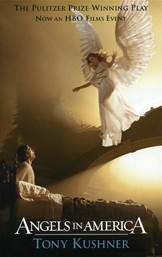
Angels in America by Tony Kushner
As a queer writer, I’ll always adore the expansiveness of Kushner’s affection for humanity in his two-play cycle, but it’s the play’s treatment of Roy Cohn that I think is the real masterwork. Not for a moment does Kushner condone the homophobia, brutality, and self-serving nature of his antagonist, but by the time the final curtain falls, it’s impossible not to feel a connection with him. It isn’t redemption for Cohn — neither Kushner nor I would call him a hero — but it’s a step closer to understanding.
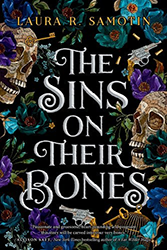
The Sins on Their Bones by Laura R. Samotin
The first book in the Cursed Crown duology introduces a world rife with political drama, civil war, and magic inspired by Jewish folklore. But at its core, The Sins on Their Bones is a story about surviving the worst thing that’s ever happened to you and emerging stronger on the other side. Watching the protagonist Dima process his grief over his role in the relationship that shattered his life and destabilized his country, I was reminded that sometimes the most difficult journey of forgiveness is the process of forgiving ourselves.

James by Percival Everett
James forces the reader to upend every assumption we brought with us from our last foray into Huckleberry Finn. By transforming Twain’s racist caricature of the slave Jim into a compassionate and bitingly funny protagonist in his own right, Everett’s satire gives the reader nowhere to hide from the wrongs done to the original character. The ending leaves us with unanswered, thorny questions of justice and reparation, but the central question of humanity is clear as day.
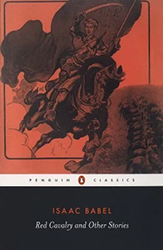
Red Cavalry by Isaac Babel
One of the greatest short story writers of all time, Babel’s masterwork takes us behind the front lines of the Soviet Red Army in the 1920s. But this is not your standard war novel. We are exposed to cruelty, yes, but also absurdity, from indiscriminate antisemitism to the pointless, bravado-filled killing of a goose. War is the easiest place in the world to divide mankind into allies and enemies, but Babel’s sharp eye reminds us that the real separation between “us” and “them” is never so simple.
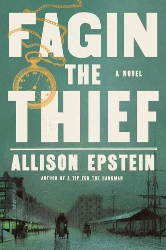
Fagin the Thief by Allison Epstein
Like many of the books listed above, Fagin the Thief is not necessarily about redemption or turning villains into heroes. My character of Jacob Fagin makes choices that even I find hard to forgive. But by showing Fagin’s world through his eyes, my hope is that readers will see the humanity that runs through all of us — and see how much violence we do to others when we write them off as lost.
Allison Epstein earned her M.F.A. in fiction from Northwestern University and a B.A. in creative writing from the University of Michigan. A Michigan native, she now lives in Chicago. When not writing, she enjoys good theater, bad puns, and fancy jackets. She is the author of the historical novels A Tip for the Hangman and Let the Dead Bury the Dead.